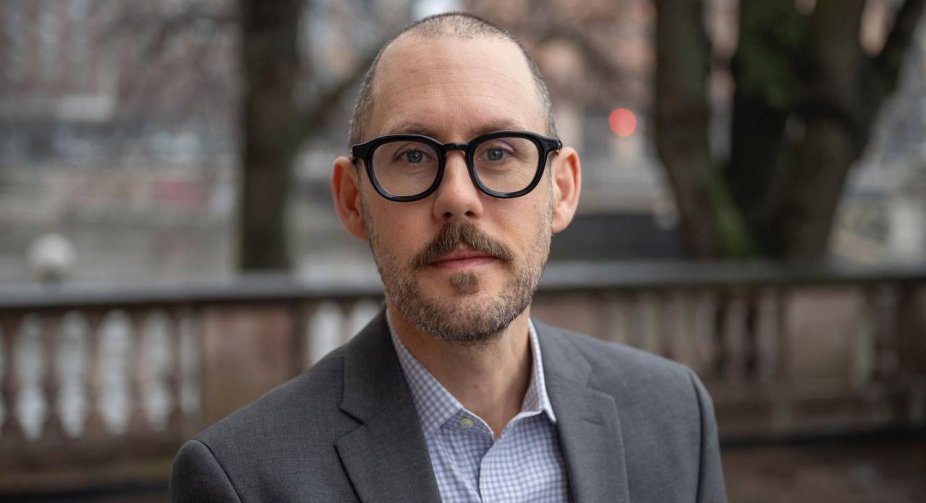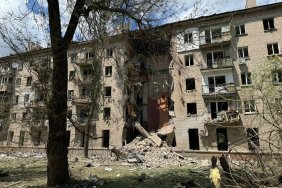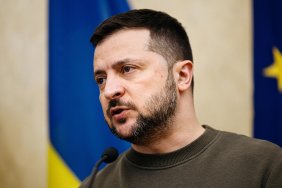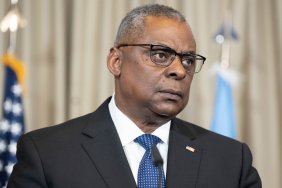One of the main topics of the last days of international politics is elections, or rather "elections without a choice" in the Russian Federation. Long before the official start of the election process itself, the name of the winner was known. We talked about the game of elections and possible scenarios of the world's political life after this game with Michael Runey, Adviser, Democracy Assessment team at International IDEA. Michael joined International IDEA in March 2022. He is an adviser to the Global Programs Democracy Assessment Group, where he is involved in research, analysis, communication, and coordination in support of the Global State of Democracy(GSoD) initiative.
– We are communicating with you during the final stage of the presidential election in the Russian Federation. The first results are being announced, and some countries have already given their assessment of what is happening. For example, according to BILD, the German Foreign Ministry will not call Putin “Presidentof Russia” anymore. What do you think will be the further development of the worldwide legitimization of the Russian president at the end of the elections? Will he be recognized as the legitimate president of the civilized world?
This electoral cycle was certainly more transparently falsified than previous ones – there were no Kremlin-sponsored spoiler candidates like Ksenia Sobchack, for example, and they did not let Boris Nadezhdin register – but it is highly unlikely to change any government’s view of Vladimir Putin status as Russia’s leader. I think it has been quite some time since he was thought of him as the “legitimate” president in the sense that he was legitimately chosen through some semblance of democratic processes. Even if governments sometimes saw fit to pretend otherwise in publics ettings, he is more the “legitimate” president of Russia in the sense that Mohammed bin Salmanis the legitimate ruler of Saudi Arabia: might makes right, and who else is there? But this does not mean, of course, that Putin will be treated like any other world leader, and he isn’t: the International Criminal Court has had a warrant out for his arrest since March 2023.
– How do you assess the level of transparency of these elections?
The lack of independent or credible electoral observers in the country means that we do not have much in the way of transparency into electoral processes at the moment, and this was of course intentional. We also have no reason to take the Central Election Commission’s statistics seriously. However, in the coming weeks creative researchers and journalists should be able to provide some transparency into what went on during the election – for example, Novaya Gazeta has used statistical methods to estimate the scale of vote falsification. Hopefully we will see more of this in the days and weeks to come.
– Some results from polling stations abroad have started to appear on the Internet. According to this information, in a number of countries, Putin does not even gain 10%. Does this mean that today's Russian opposition is de facto not in Russia?
I have not seen these out-of-country turnout figures (just this from Meduza, citing a Telegram channel and showing stronger support than that) so can’t comment on the specifics there. But generally speaking: yes, hundreds of thousands of committed or persuadable opponents of Putin and/or the war on Ukraine have left the country since the full-scale invasion. The very few avenues for safe or productive protest, dissent, or even mild criticism in Russia right now means that it is very difficult to figure out who might be the opposition within the country beyond the people either brave or crazy enough to do so knowing the consequences.
Maybe a more useful way of thinking about this, for those of us who are not in Russia and want tosee an end to its war of aggression and a future where countries in its so-called “near abroad” arenot at risk of invasion or interference, would be to focus on trying to use things like this electoral cycle on identifying where the real and potential domestic opposition that would help achieve or be supportive of such a goal might be found. To oversimplify a lot, people oppose wars and authoritarian governments for two kinds of reasons: moral and practical. It would be nice if enough people could be motivated to oppose or obstruct a government like Putin’s on strictly moral or philosophical grounds, but that’s unrealistic: it is not grounded in historical experience, and we do not have the time to wait for a world-historical moment of mass moral and political transformation while bombs are falling all over Ukraine.
There are many people who can be moved to more tangibly oppose the war on practical grounds, because it inconveniences or harms them, their family, or their close circle of personal acquaintances personally. These are the sorts of people any opposition or antiwar movement wouldneed to be successful, and therefore these are the sorts of people one should be looking for inside Russia.
The war has completely reordered Russia’s internal political economy, producing new economic winners and losers, and it is still unclear how long it can maintain its massive military spending, especially if global energy prices decline. What happens when factory jobs are no longer so high-paying, when austerity becomes visible in schools, or the war causalities simply become too much? One would hope that any would be opposition within Russia is thinking about these things.
– The history of the last elections in Russia is closely intertwined with Navalny's death. If he were alive today, would it affect the course of the elections?
It seems unlikely, given that even if he was alive the multi-year campaign to shut down all aspects of his organization within the country were ruthless and thorough.
– Do you expect the situation on the geopolitical arena or on the military front to change after theelections in Russia?
I am not an expert in military affairs and have to politely decline to speculate on the second half of this question. On the first half: yes, we should expect things in the geopolitical arena to change in the coming years, but as this was far from Russia’s first stage-managed, farcical election of Putin’s tenure we should expect any country to change its approach to Russia substantially because of it. The main variables will probably continue to be the ability of Russia to supply in terms of cheap energy, mercenaries, and other tangible goods around the world.






